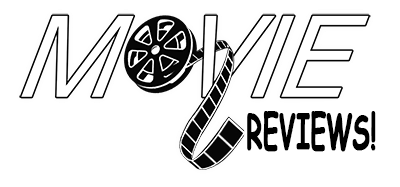 🍿🍿🍿🍿🍿🍿🍿🍿🍿🍿 | 🎙️ EPISODE 277: 07.13.2020 In a way, the structure of Alverson's first three films is the same, echoing The Builder's voicemail at the end of the first movie: the story can happen in any direction; there's no beginning, no end 1. Are you not entertained? However, his fourth feature–in many ways his most experimental and surreal to date–is also the first time he's come close to constructing anything by way of a linear narrative. It's more a connection point between The Comedy and The Mountain than a direct pair with the latter. The only story that can work in any direction here is The Comedian's act. That Comedian is Gregg Turkington playing his own character, Neil Hamburger, a persona he's been honing since at least the early to mid 90s. Though he's never referred by that monicker in Entertainment, this adds a "real world" meta level to the presentation which elevates and expands the various thematic avenues Alverson seeks to explore; largely, I posit: existential dread and its intricate ties to the American experience. |
If the methods for combating the void in each film could be distilled down to one word, then we've already seen "work" (The Builder), "religion" (New Jerusalem), and "apathy" (The Comedy); here? you guessed it, what else could it be... "entertainment" ...
We are a long ways away from that time when Robert Johnson sold his soul to the devil at a local crossroads to achieve musical success in the early 1900s. In a sense, with the development of the internet, we've come full circle from that moment, that concept. Entertainment is and has always been a kind of religion. And now we have the entirety of that entertainment literally at our fingertips, just a click away. If the collective consciousness is real, to any extent, then there isn't much of a point in trying to make or do anything new as far as "entertaining" goes. If any human among us feels inspired to make something, the very base response we can and should expect is a polite "hey, we're trying our best." We're still selling our soul constantly and we couldn't care less about that whole "success" part of the equation! Talk diminished R.O.I.!
But–(before the plague times here in 2020, anyways)–there will always be a "need" for live entertainment. Humans want to go out and see a person or a band or an act or [whatever] and they want to feel entertained. This is void-filling 101. It's at once frivolous and totally innate. There are 86,400 seconds in a day and we have to fill them up with something when we aren't asleep. Passivity and idle hands are second nature at this point.
Though it isn't quite a pair with The Comedy, Entertainment is clearly connected. Both films were co-written by Tim Heidecker (as well as Turkington here) and Heidecker cameos at the very end (as does Michael Cera in an incredibly creepy role). It's linear, to a point, then completely fragments into an ever increasingly hellish world. In a notable, bloody dream sequence where The Comedian finds a woman in agony in a bathroom stall having just given birth to a stillborn baby we see a symbol if not a price for putting one's art out into the world.
The movie is buoyed by a series of voicemails The Comedian leaves for his estranged daughter; like the images on screen, they get increasingly more bleak as things progress (before one final moment of false hope). Another theme here is how human-beings are acting nearly all the time; when are we ever really our true selves? and what does that even look and sound like? Perhaps, we see this self exposed in these unrequited pleas...
The roads The Comedian travels on through the Mojave are a wasteland. There's a sub-reality to this "comedy tour" starting in a literal prison then moving through the driest, deadliest, unfriendliest places on Earth. He passes time in between shows watching Spanish language soaps and going on cheap roadside attraction tours whose very existence as a form of entertainment are almost antithesis to the very notion of spending one's time doing anything; what's the point other than filling those 86,400 seconds with something. All we can do is laugh, or cry...
FOOTNOTES:
1. I've addressed this further with my Director Focus piece on Rick Alverson, which I implore you to check out if you have any interest. [BACK]
CHRONOLOGICALLY
⫷ EPISODE 277A - (YOU ARE HERE) - EPISODE 278 ⫸
⫷ EPISODE 277A - (YOU ARE HERE) - EPISODE 278 ⫸

0 comments:
Post a Comment